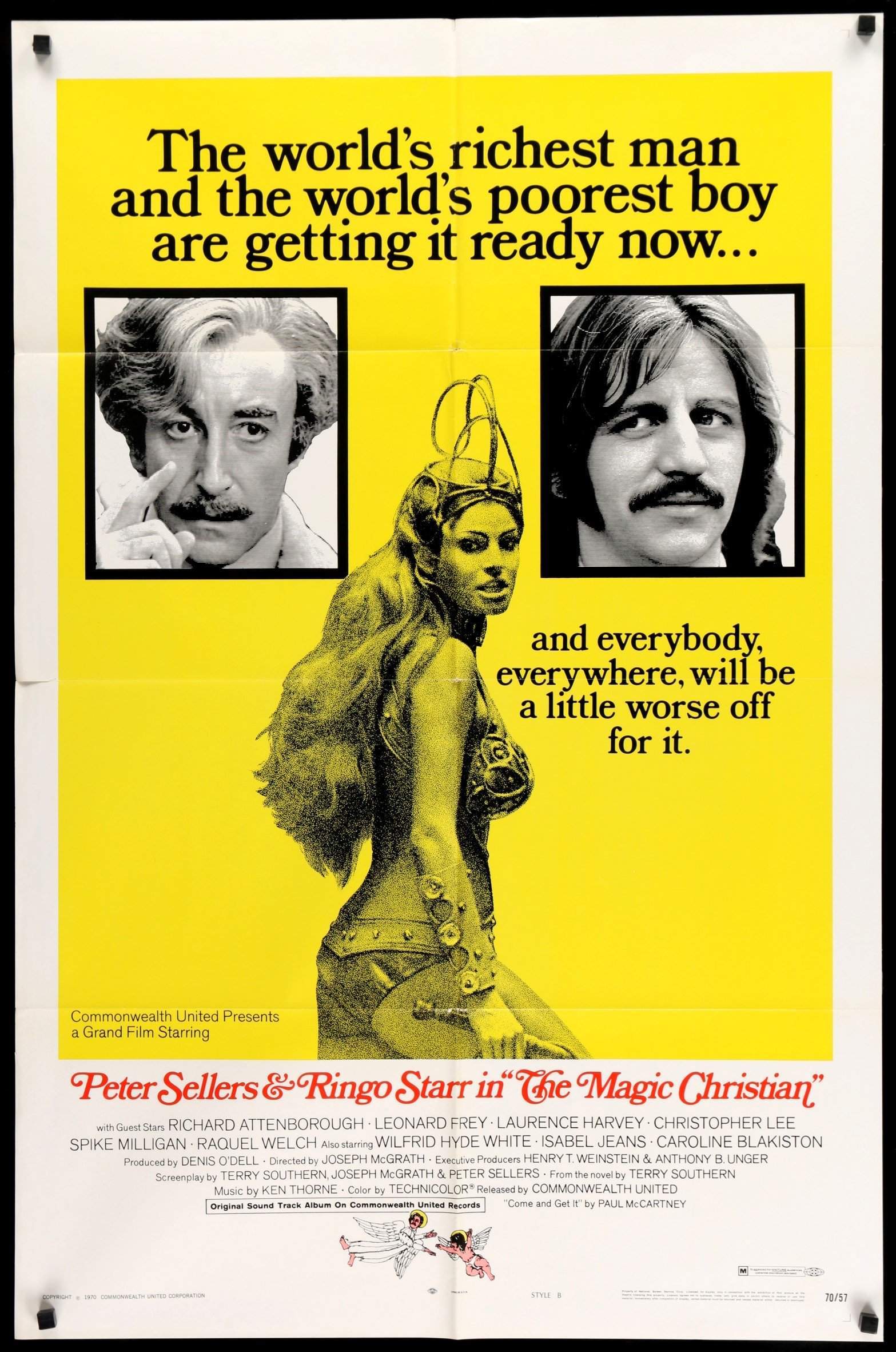
By Richard Winters
My Rating: 1 out of 10
4-Word Review: No ideas for script.
Joe (Walter Matthau) is a head of a large movie studio who makes a promise to a dying friend (Vincent Gardenia) that he’ll make every effort to get his concept, which is to make a movie around the title ‘Love and Sex’, made. Joe then hires struggling actor Herb (Charles Grodin) to write the script, but Herb has no idea of where to begin and seems more concerned with mending his troubled marriage with his wife (Tyne Daly). Joe then hires wacky director Sid (Bill Macy) to helm the project, but he too is devoid of any ideas and more preoccupied with his getting his young wife (Gild Radner) to go back to him.
The behind-the-scenes history of how this movie even came about is far funnier than anything you’ll actually see on the screen. It all started when Paramount Studios paid a large of sum of money for the right’s to the sex manual ‘The Joy of Sex’ because they felt the title would have a large commercial appeal. They then hired Grodin to write the script telling him it could be about anything just as long as the title of it was ‘Joy of Sex’. Grodin, like the character he plays in the movie, was at a loss of ideas, so he finally decided to base the script around his real life situation about an actor hired to write a screenplay based solely around a sexy title. When he submitted the completed script to the studio they decided to pass on it and gave the duties of writing the script around the Joy of Sex title to someone else, which later got made into a movie directed by Martha Coolidge. Meanwhile Grodin became determined to get his script made even though he could no longer used the same title since Paramount retained the rights to that. He spent 7 long years peddling the script around to all the major Hollywood studios and even a few independent ones until he finally decided to use his own money to fund it and get his actor friends to agree to be in it for as small of a pay scale as they could with Grodin himself accepting only $5,000 for his work despite being both the star and producer.
While the concept sounds funny and even novel the final product isn’t. A lot of the problem is that outside of the inciting incident nothing much happens. Everyone just sits around complaining about a lack of ideas, which soon gets quite boring and redundant. The marital spats that occur in-between, both with Grodin and his wife, but also with Macy and Radner, and even Steve Martin and Penny Marshall, who appear briefly in a cameo, is neither lively, or clever and just helps to make any already dull movie even duller. Satirizing the Hollywood studio heads isn’t exactly ground-breaking either.
I also had a hard time understanding why a big studio mogul like Matthau would want to put up a giant statue of a dinosaur in the middle of the studio backlot since it was from a movie that didn’t do well at the box office. Supposedly it was due to his friendship with the director, but to me that just didn’t jive. If the movie had done well then yes a statue was in order, but to be reminded of a flop that cost the studio money seemed very hard to imagine and too stupid to be comical. If the character’s motivations don’t make sense then it’s hard to get into the story, which is where this thing really falters.
For his part Grodin himself is quite amusing. Nobody does deadpan comedy the way he does, so his scenes still work, and there are a few humorous comments made here and there, especially by the character played by Earl Boen, but everything else just dies. The voice-over narration by Grodin, which got added later in an effort to make the movie ‘funnier’ after the responses by the initial test audiences were quite negative, doesn’t help things at all. A good movie should not have to rely on narration as everything should be conveyed by either dialogue, or action, or through other forms of visuals. Once you need narration to ‘improve it’ you already know it’s a mess.
Turning the thing into an ill-advised romance at the very end, which even includes a sappy love song, between Grodin getting back together with his wife just sinks it even further. Their fights weren’t too interesting to begin with and neither person was well-defined enough for the viewer to care what happened to them.
Grodin would later write in his autobiography of how bitter he was that the studio didn’t market the film better and the poor treatment Hollywood elites gave it, but it really is a bad movie and I think his ego got the better of him with this one. I’m a fan of his comic style and even the offbeat talk show he had during the late 90’s, which didn’t go over well with everyone and didn’t last long, but I draw the line with this. It just doesn’t work at all and can’t blame anyone for disliking it in fact I’d be very surprised if there was anyone other there, outside of Grodin of course, that did like it.
My Rating: 1 out of 10
Released: May 3, 1985
Runtime: 1 Hour 20 Minutes
Rated PG
Director: William Asher
Studio: MGM/UA
Available: DVD-R











